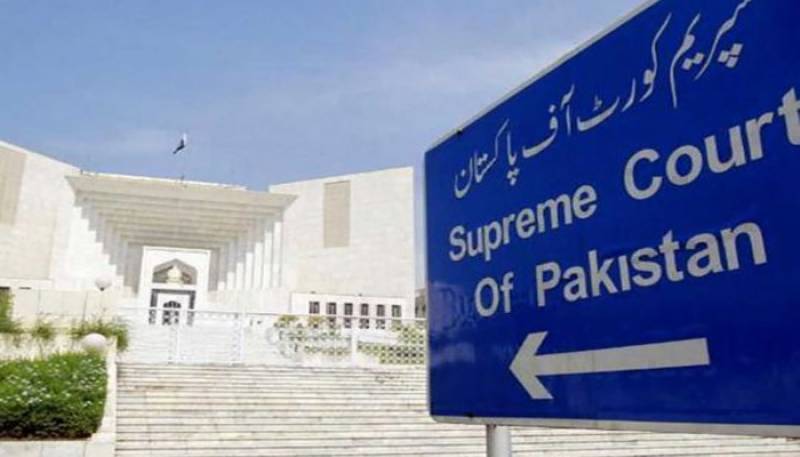Islamabad (Web Desk): The Supreme Court (SC) on Monday resumed hearing the petitions challenging the controversial Supreme Court (Practice and Procedure) Act 2023, that aims at curtailing the powers of the chief justice of Pakistan (CJP).
The 8-member bench comprising CJP Umar Ata Bandial, Justice Ijazul Ahsan, Justice Munib Akhtar, Justice Sayyad Mazahar Ali Akbar Naqvi, Justice Muhammad Ali Mazhar, Justice
Ayesha Malik, Justice Syed Hasan Azhar Rizvi and Justice Shahid Waheed is hearing the case.
In the previous hearing on May 2, while rejecting the Pakistan Bar Council’s (PBC) request for a full court, the CJP highlighted that all institutions were required to follow the instructions issued by the SC and rejected the PBC’s request for a full court.
In his remarks on the SC orders to halt the SC bill, Justice Bandial stated that the court orders were of an “interim” nature and that democracy was a primary tenant of the country’s Constitution.
According to the CJP, a “free judiciary and Centre” were also salient aspects of the Constitution and the ongoing case affected the independence of the judiciary.
The CJP said that the SC expected serious arguments from the parties in the case, adding that the large bench would provide “excellent assistance”.
“It is, for the first time, claimed that a necessary element of the Constitution is violated through legislation,” he said.
CJP Bandial also remarked that the law in question was the first of its kind in Pakistan. “This law concerns the third pillar of the state,” he said.
“Our stay order of the last hearing is in place. Law related to the Supreme Court rules are very clear,” said CJP Bandial.
The court sought comprehensive answers from all parties in the case on May 8 (today), as well as the parliamentary records of the law and dialogue in the standing committee.
Subsequently, the government requested the SC to form a full court to consider important questions regarding the judiciary’s independence and parliament’s powers to regulate the court’s procedure. Separately, the government also asked the court to dismiss the challenges to the law.
The Supreme Court (Practice and Procedure) Act 2023, which is aimed at regulating the powers of the CJP, was approved by the Parliament during a joint sitting on April 10.
The National Assembly, on April 21, notified the Supreme Court (Practice and Procedure) Bill 2023 as an act.
On April 13, the SC issued notices to the federal government, Attorney General of Pakistan (AGP) Mansoor Awan, political parties, the Pakistan Bar Council (PBC) and the Supreme Court Bar Association (SCBA).
Regarding exercising the apex court’s original jurisdiction, the bill said that any matter invoking the use of Article 184(3) would first be placed before the above mentioned committee.
The bill says that if the committee is of the view that a question of public importance with reference to the enforcement of any of the fundamental rights conferred by Chapter I of Part II of the Constitution is involved, it shall constitute a bench comprising not less than three judges of the Supreme Court of Pakistan which may also include the members of the committee, for adjudication of the matter.
On matters where the interpretation of the Constitution is required, the bill said the above mentioned committee would compose a bench comprising no less than five apex court judges for the task.
Regarding appeals for any verdict by an apex court bench that exercised Article 184(3)‘s jurisdiction, the bill said that the appeal will lie within 30 days of the bench’s order to a larger Supreme Court bench. It added that the appeal would be fixed for hearing within a period not exceeding 14 days.
It added that this right of appeal would also extend retrospectively to those aggrieved persons against whom an order was made under Article 184(3) prior to the commencement of the Supreme Court (Practice and Procedure), Bill 2023, on the condition that the appeal was filed within 30 days of the act’s commencement.


